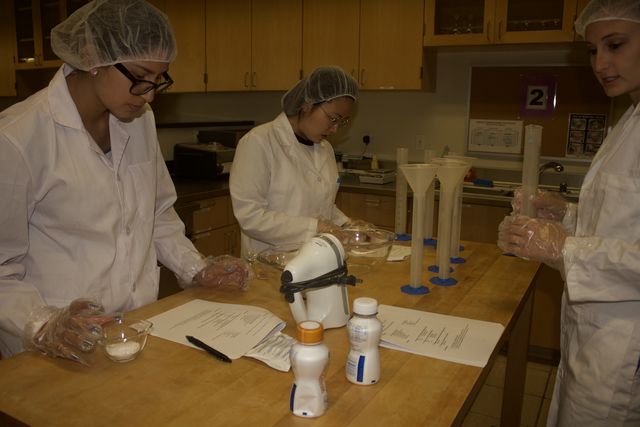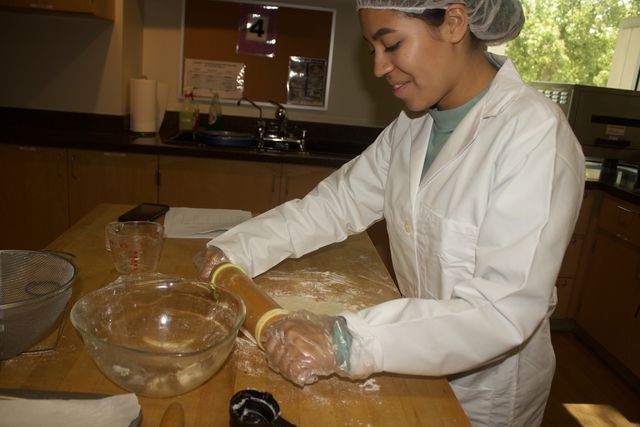CSUN’s food science program is not all about eating food, there is a lot of experimenting, cooking and testing that comes along with the major.
Claudia Fajardo-Lira, who teaches food science, explained what students learn in this program and what they can do after graduating with a degree in food science.
“The main purpose of food science is to keep our food supply safe and to offer options to our consumers that are healthy,” Fajardo-Lira said.
Food science is a way to bring a variety of foods that are affordable and healthy to a large audience, said Fajardo-Lira.
Students in this major have a variety of jobs they can do after obtaining a degree in food science.
Fajardo-Lira said she knows a graduate who works for Peet’s Coffee developing flavors. Another graduate works for POM Wonderful in research and development. A third graduate works with baby carrots and ensures that the carrots are not contaminated to prevent consumers from getting sick.
In introductory food science course 201, Rosalia Professor Garcia-Torres’ students were placed into groups and each one had a different food to make. The students made mayonnaise, pie crust, whipped cream and funnel cakes. The students make different recipes for each food and then had to compare the consistency and taste in the foods.
“[In] this lab we are studying oils and the affect they have in cooking. Students are trying different products and learning the purpose of oils,” Garcia-Torres said. “For the group that is making pie crusts they are trying different fats, we are going to evaluate the texture, and mouthfeel of the pastry.”
The students making the funnel cakes only had one recipe, said Garcia-Torres.
“The idea is for them to see the heat exchange and how you can use oil as a cooking method this is why they are doing deep frying,” Garcia-Torres said.
The group made three different whipped creams from different brands, said Garcia-Torres. Their job was to see the consistency of the foam and how it looks.

The lab provides useful materials, whether a student is studying nutrition and dietetics or food science. They are able to learn about the use of ingredients in different recipes.
“People that work in the nutrition field they usually recommend diets to people or develop recipes for them,” Garcia-Torres said. “They need to understand which ingredients they want to put in the recipes from the food science perspective, if someone works at the food industry they can be in the research and development department.“
Nina Morin, the president of the Food Science Association (FSA) chapter at CSUN, said she decided to major in food science after she learned how one can do many things with the major. She has learned much more about food science through FSA.
“It’s not just something super easy when we go to the grocery store and we purchase a precooked meal,” Morin said. “There’s science and there is information behind it, and it’s fascinating that when I’m done with school I can go work for food companies.”
Morin is also a member of the Institute Food Technologists through FSA, where students are able to network with other food scientists in Southern California.
“Really with food science there are many aspects you can work at with a company. With this degree I can end up working in research and development or in quality reassurance,” Morin said. “There’s a lot of avenues that food scientists can go with just a bachelor’s degree.”





